
Jun 19, 2025 | Storms and Outages
A round of severe weather is expected to move across our territory this afternoon into the evening hours. The storm is expected to produce wind gusts of 50-plus mph in addition to lightning and rain.
We have been monitoring this storm closely over the past few days and are ready to respond. Even with the best preparation, storms and severe weather can cause damage and result in outages. We’ve activated our storm response plans, which include:
- Activating storm teams with additional personnel in the field, control centers and customer service centers across our 29-county territory.
- Implementing 16-hour shifts for around-the-clock coverage.
- Bringing in additional crews from outside the company to assist in restoration efforts.
We encourage you to also prepare for the storm. We offer the following safety tips and reminders:
- If you encounter a downed wire at any time, assume it’s energized and stay away. If you see one, report it immediately to PPL Electric.
- Just in case you lose power, it’s good to have an emergency kit on hand with food, water, medication and any pet supplies you may need.
- We encourage customers who have medical conditions requiring electricity to make arrangements in case of an emergency.
- Make sure to keep phones and other mobile devices charged.
- Remember that candles can start fires. If you lose power, use flashlights instead. If you use a generator to supply power during an outage, be sure to operate it outdoors.
- For your safety and ours, please keep a safe distance from our crews.
To report or check the status of an outage, visit pplelectric.com/outage.

May 1, 2025 | Safety and Security
Staying safe around electricity is something we focus on every day as we work to deliver the most reliable power possible to our 1.5 million customers. We should also take that mindset home with us and make electrical safety a priority.
During National Electrical Safety Month, take some time to inspect electrical equipment and components in your home and make sure your home is free from electrical hazards. And if you do detect some safety hazards, consider hiring a qualified electrician to do an inspection and make any needed repairs or upgrades.
Here are some common electrical safety measures, including tips from the Electrical Safety Foundation International, that you can take around your house:
Extension cords
- Never use more than one extension cord and don’t overload the cords you do use.
- Make sure the extension cords you use are properly rated for their intended use and have been approved by an independent testing laboratory.
- Inspect cords before use. If you spot cracked or frayed sockets, loose wires or loose connections, discard and replace the cord.
- Don’t put staples or nails through cords.
- Don’t put carpets or rugs over cords.
Overloaded circuit warnings
- Flickering, blinking or dimming lights.
- Frequently tripped circuit breakers or blown fuses.
- Warm or discolored wall plates.
- Crackling, sizzling or buzzing in receptacles.
Power tool safety
- Use ground fault circuit interrupters with power tools to protect against shocks.
- Don’t use extension cords longer than 100 feet with power tools.
- Never use power tools near live electrical wires or water pipes.
- When working with electricity, use tools with insulated grips.
- Wear appropriate personal protective equipment.
Smoke alarms
- Install smoke alarms in every bedroom, outside each sleeping area and on every floor.
- Test smoke alarms once a month.
- Replace smoke alarm batteries annually.
- Occasionally dust or lightly vacuum exterior of alarm to remove dust and cobwebs.
- Replace smoke alarms every 10 years.
Outdoor safety
- Contact 811 at least three business days before any digging project.
- Always identify potential overhead power lines before beginning any outdoor project.
- Carry ladders parallel to the ground to avoid contact with overhead power lines.
- Don’t use electrical equipment or extension cords in wet conditions or in the rain.
Additional resources
PPL Electric offers a variety of important electrical safety information and resources at pplelectric.com/safety. You can find resources for specific groups including:
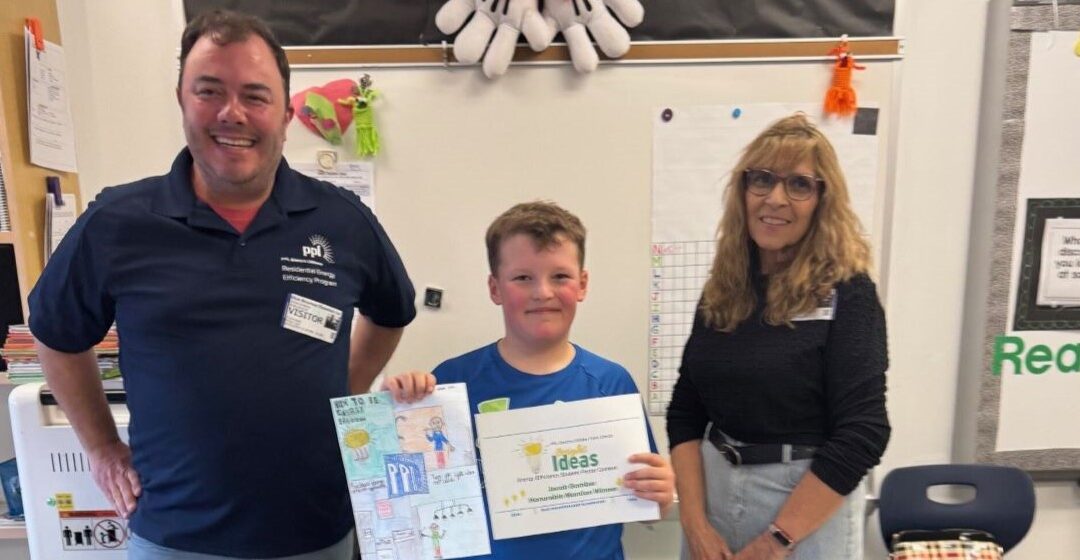
Apr 17, 2025 | Community Involvement, Energy Efficiency
Over 500 students participated in the annual Bright Ideas Energy Efficiency Student Poster Contest and 27 participated in the Think! Energy Innovation Challenge, presented by PPL Electric Utilities. Students designed posters and other creative projects to illustrate practical ideas for energy efficiency and sustainability.
Contest submissions came from students whose classes participated in energy efficiency presentations and hands-on activities. Topics and bright ideas from this year’s poster entries included recycling, efficient lighting, using solar power, turning off appliances when not in use and more.
Budding artists from kindergarten through 8th grade took part in the Bright Ideas Energy Efficiency Student Poster Contest. Along with highlighting environmental awareness, the artwork also earned accolades for several participants. Grand prize winners received a $100 gift card, plus a $100 grant for the teacher and a pizza or ice cream party for the class. Honorable mentions received a $25 gift card and a pizza or ice cream party.
The Think! Energy Innovation Challenge encouraged 9th through 12th grade students to create compelling video and artwork showcasing their ideas for water and energy efficiency. Teams of up to four students submitted their work, with the grand prize and honorable mention recipients each receiving wireless headphones.
Teachers emphasized the importance of sustainability education following this year’s event.
“Thank you to PPL Electric Utilities for offering this opportunity to my students,” said Ms. Nikki Giannaras from Hanover Elementary School. “They were very excited about the contest. A big congratulations to my student, Evy, on winning the Grand Prize!”
“The energy program was perfect to jump-start our class lessons on conservation and energy,” said Ms. Justine Taylor from Conestoga Christian School. “My students were excited to participate in the poster contest and were blessed to be awarded with a party when one of my students won an honorable mention. Thank you, PPL Electric Utilities, for all you do for our community!”
“I am beyond excited to share that one of my students, Cayden, was selected for an honorable mention in the PPL Electric Utilities contest!” said Ms. Nicole Szarka from Willow Lane Elementary School. “We had such an amazing time during the presentation, where my students and I learned so much about the energy industry, sustainability and how we can all make a difference. The hands-on experience and engaging activities during the visit truly inspired my students… It’s moments like these that remind me how much potential each of my students has to achieve great things.”
PPL Electric Utilities is proud to host the Bright Ideas Energy Efficiency Student Poster Contest and Innovation Challenge. Find the full list of winners below and enjoy their artwork here.
Looking for ways to find energy savings at home? Explore our getting started guide.

Poster contest pizza party at Drums Elementary School.

Poster contest honorable mention (Jacob) from Blue Mountain Elementary School.
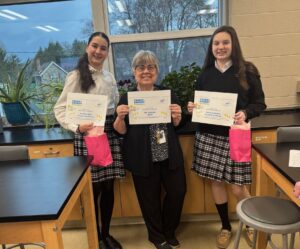
Innovation Challenge grand prize winners (Solenne and Serafima) from Lancaster Catholic High School.

Innovation Challenge honorable mentions (Logan, Elani and Shelby) from Donegal High School.
Grades K – 2nd
Grand Prize: Liam (Ms. Melissa McGee; Drums Elementary School)
Honorable Mentions: Cayden (Ms. Nicole Szarka; Willow Lane Elementary School), Samantha (Mc. Jaclyn Tumolo; Lincoln Elementary School)
Grades 3rd – 5th
Grand Prize: Evelyn (Ms. Nikki Giannaras; Hanover Elementary School)
Honorable Mention: Jacob (Ms. Amanda Deal; Blue Mountain East Elementary School), Lila (Ms. Justine Taylor; Conestoga Christian School)
Grades 6th – 8th
Grand Prize: Lyla (Mr. Joshua Abrams; Springhouse Middle School)
Grades 9th – 12th (Innovation Challenge)
Grand Prize: Solenne and Serafima (Ms. Anne Bleistine; Lancaster Catholic High School)
Honorable Mention: Aidyn and Mitch (Mr. Mark Nebzydoski; Western Wayne High School), Logan, Elani and Shelby (Mr. Matthew Deller and Mr. Robert Swisher; Donegal High School)
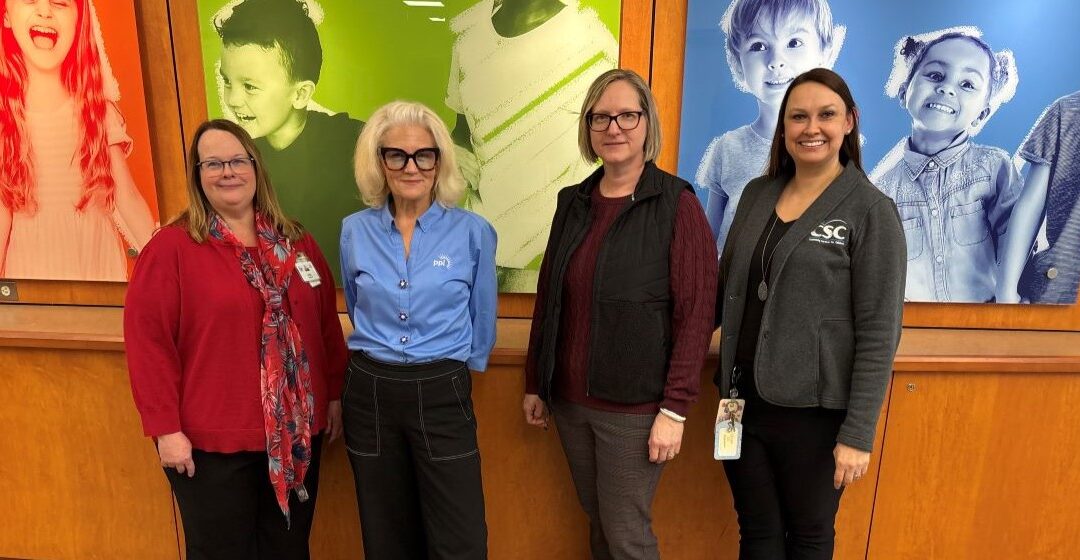
Apr 16, 2025 | Community Involvement
We believe that education is vital for vibrant communities. That’s why we donate our time, energy and our know-how to help students and teachers in our neighborhoods. Through PPL Foundation grants, we are helping prepare today’s students become tomorrow’s leaders.
Community Services for Children (CSC) is a recipient of an Education Improvement Tax Credit grant. The organization is using this grant to help support its two “Innovation Labs” at its downtown Allentown location.
The labs provide a number of hands-on STEM learning tools and programs to help build thinking and collaboration skills for preschool-aged children in Allentown.
“CSC is about connecting families to the resources that they need,” said Deidra Vachier, CEO and president of CSC. “Many of the children that we serve, because they are some of our most vulnerable children have never had a preschool experience.”
Due in part to the opportunities provided by the labs, CSC says that kids’ test scores at the downtown Allentown location have been higher than other locations in the region.
“It supports everything that the PPL Foundation supports,” said Jane George, manager of government affairs and special projects at PPL Electric Utilities. “[The students] were engaged, they wanted to learn, and this is becoming their foundation for future learning.”
View the video below to learn more about the PPL Foundation, CSC and how these Innovation Labs are helping these young students learn vital educational skills.
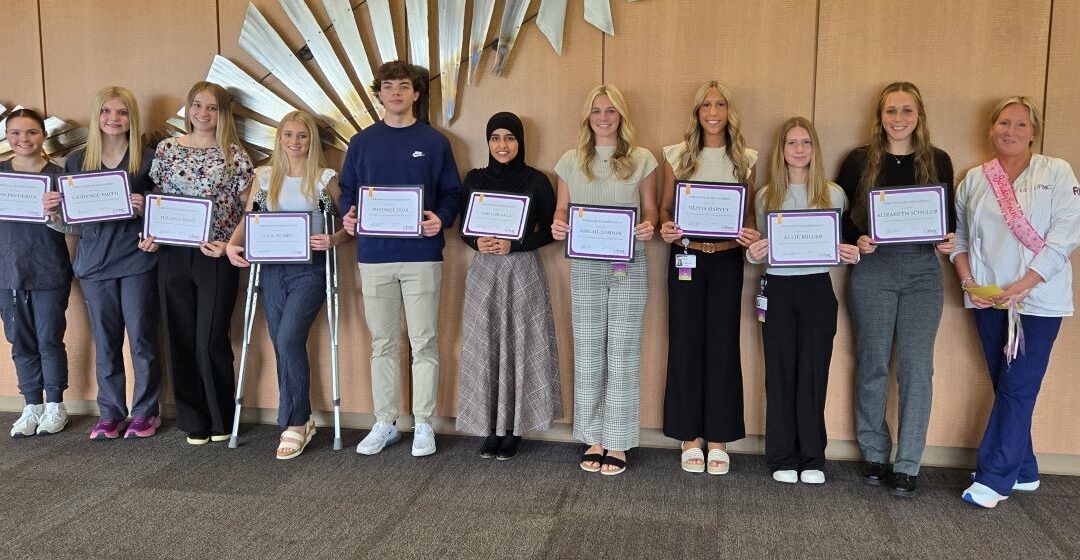
Apr 9, 2025 | Community Involvement
Through the PPL Foundation’s Empowering Communities grants, we support local programs focused on education, environmental stewardship, economic development and/or workforce development. We believe that serving our communities means much more than just delivering safe and reliable electricity.
UPMC in North Central Pa. and Susquehanna Health Foundation are recent recipients of an Empowering Communities grant. The health system’s foundation is using this grant to support its nursing co-op program. The co-op graduated 11 local high schoolers on April 4 after 15 weeks of hands-on, real-world experience inside of area UPMC locations. The students come from Loyalsock, Williamsport, South Williamsport and Hughesville high schools.
We believe in supporting education and setting up students for long-term success in their careers. That’s why we have provided grants to Susquehanna Health Foundation since 2023.
“These students are getting the full experience,” said Alison Gower, program director for the co-op at UPMC Williamsport. “They work alongside the nurses and nurse aids, and work with patients on a personal level to help give them the care that they need.”
The student nurses rotate through several departments during the program, including the medical-surgical unit, emergency department, The Birthplace, Intensive Care Unit, rehabilitation, pediatrics, Operating Room and a unit of the students’ choice that they are most interested in learning more about. 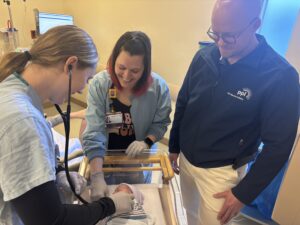
“This is something that most students don’t get to do when they’re in high school. It’s been an incredible experience,” said Abigail Lorson, a senior at South Williamsport High School. “I’ve learned that this job is about devoting yourself to the patients and making them feel as comfortable as they can be. You can’t learn this level of care in a book.”
“It’s really nice to have a program like this because it has given me a chance to try out a role before committing my career to it,” added fellow South Williamsport senior Alizabeth Schuler.”
The co-op is a paid program that gives not only hands-on experience, but a boost to the start of students’ college careers. And for those who do not pursue higher education, there are opportunities to work at UPMC after the program. Of the 44 students who have graduated from the program in the last five co-ops, 14 have been hired into care attendant positions.
“When I first started the co-op, I didn’t know where within the hospital I wanted to go,” said Michael Yoas, another senior at South Williamsport. “This showed me the areas that I liked and enjoyed, and I want to someday become a registered nurse.”
While providing care to the patients is the top priority of this co-op, it is providing clarity to the students and affirming that this career path is right for them.
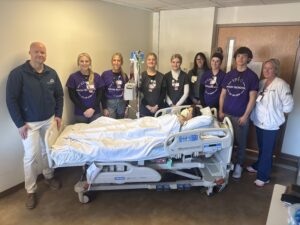 “It has been everything I imagined and more; this experience clarified for me that this is what I want to do with my life,” Lorson said.
“It has been everything I imagined and more; this experience clarified for me that this is what I want to do with my life,” Lorson said.
“We really appreciate our partnership with Susquehanna Health Foundation and UPMC,” said Jonah Howe, regional affairs director at PPL Electric Utilities. “This type of opportunity is so crucial to the future of healthcare and taking care of our communities, and this level of program is a perfect fit for an Empowering Communities grant.”
The latest batch of co-op students have now officially moved on from the program, but two more semesters of students will join the team next school year, beginning in the fall.
“Over the years, the students have all been very responsible and hardworking, and it’s so great to see their excitement,” Gower said. “We’re grateful for the support we’ve received from PPL, and we look forward to growing this program and educating these students.”











 “It has been everything I imagined and more; this experience clarified for me that this is what I want to do with my life,” Lorson said.
“It has been everything I imagined and more; this experience clarified for me that this is what I want to do with my life,” Lorson said.